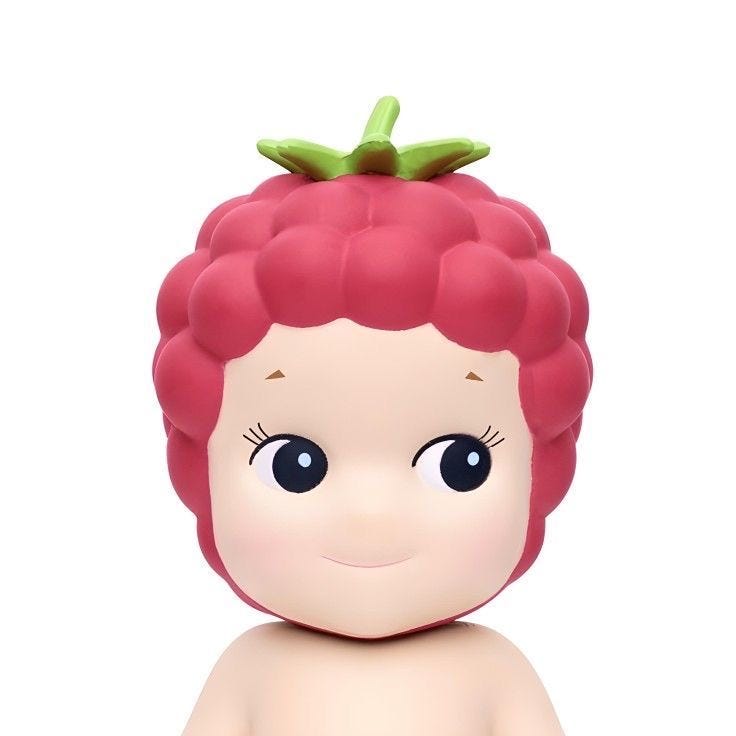The Psychology of Surprise: How Sonny Angels’ Mystery Marketing Fuels Consumer Obsession
Unlocking the Magic of Surprise in Modern Marketing
Surprise is a powerful psychological phenomenon that bridges cognition and emotion. It is shaped by our assessments of probability, intuition, and even superstition, and in turn, it shapes our hedonic experiences. This emotional and cognitive interplay is the foundation of one of marketing's most potent tools: the element of surprise.
The Power of the Unexpected
If you've spent any time on TikTok recently, you've likely encountered unboxing videos featuring Sonny Angels. These miniature figurines, with their whimsical designs and concealed packaging, have amassed a cult-like following. Millions of collectors obsess over the thrill of not knowing which figure they'll receive, making Sonny Angels a prime example of how surprise can fuel consumer enthusiasm.
The success of Sonny Angels isn’t just a fleeting trend—it’s a masterclass in leveraging the unexpected to drive engagement. Surprise taps into our intrinsic curiosity and transforms a simple purchase into a memorable experience. This strategy creates emotional connections, encourages repeat purchases, and turns customers into loyal advocates. By intertwining surprise with anticipation, Sonny Angels have crafted a unique cultural phenomenon that keeps consumers coming back for more.
A Trip Down Memory Lane: Kinder Surprise and the Joy of Discovery
Before Sonny Angels, there was the Kinder Surprise. For many, the allure of Kinder eggs wasn’t just the chocolate but the hidden toy within. This simple yet ingenious concept—combining a familiar product with an unexpected reward—harnessed our innate curiosity and love for novelty. It’s a psychological principle that has transcended decades, finding new expressions in mystery boxes, blind bags, and collectible series.
Surprises are scientifically proven to enhance enjoyment. When faced with the unexpected, our brains release dopamine—the neurotransmitter associated with pleasure and motivation. This creates a rewarding cycle of anticipation and gratification, encouraging consumers to engage with products repeatedly. The joy of discovery, whether through childhood toys or modern collectibles, drives emotional connections and consumer loyalty.
Inner Child Consumerism: Tapping into Nostalgia
An underlying factor in the success of Sonny Angels is the concept of inner child consumerism. This marketing approach targets young adults by tapping into unfulfilled childhood desires. The original vision for Sonny Angels, created by a Japanese designer in 2004, was to alleviate the stresses of adulthood for working women. Today, Sonny Angel has grown into a brand with global appeal, particularly among Gen Z collectors, thanks to its blind box purchasing model, where the surprise of receiving a randomly selected figure fuels consumer obsession.
The global blind box market, valued at approximately USD 13.5 billion in 2024, is projected to grow to USD 31 billion by 2031 at a compound annual growth rate (CAGR) of 5.5%. Sonny Angels exemplify this trend, seamlessly blending nostalgia with collectibility. For example, in the United States, a single Sonny Angel blind box is priced at $10.00 USD, while an assorted box costs $120.00 USD. In Japan, prices range from ¥770 for the Animal Bakery Mini Figure Series 2 to ¥1,650 for the Kiss Kiss Series, showcasing its varied appeal across regions.
As noted by the University of California’s digital newspaper, toy manufacturers often capitalise on young adults’ need to heal their inner child, convincing them that certain toys will bring happiness. Though Sonny Angels resemble baby toys, their target audience is predominantly women in their 20s. This aligns with the concept of neoteny—the retention of juvenile traits into adulthood—which has long been recognised as a significant aspect of human evolution.
The success of products like Sonny Angels raises important questions: Are we coping through these purchases? Is there a healthy need for nurturing our inner child? For many, these items represent pockets of joy amidst the pressures of adulthood. They challenge the notion that growing up means abandoning childlike wonder. From a biological perspective, youth is fleeting, and society often pushes individuals to grow up quickly. Yet, products like Sonny Angels show a collective yearning to reclaim moments of happiness and simplicity, even if it borders on infantile indulgence. Nostalgia remains a powerful tool, creating emotional resonance and reinforcing consumer loyalty through shared experiences of joy and discovery.
Mystery Marketing: Lessons for Brands
The use of surprise in marketing extends beyond collectibles. Any brand can incorporate elements of unpredictability to engage audiences and build loyalty. Mystery discounts, unexpected packaging, and exclusive product drops are just a few ways to evoke the thrill of discovery. By doing so, brands create memorable experiences, foster emotional connections, and encourage repeat engagement.
Sonny Angels exemplify how mystery marketing can transform a simple product into a global obsession. The combination of scarcity, personalised experiences, and social currency has driven their success. Sharing the unboxing experience online has created viral trends, turning individual moments of joy into a collective cultural phenomenon. Regional insights suggest that while specific revenue figures for Sonny Angel in markets like the US, Europe, and Australia remain undisclosed, its growing popularity in these areas underscores its expanding market presence.
For marketers, the lesson is clear: surprise isn’t just a fleeting emotion. It’s a strategic advantage that turns products into experiences and customers into advocates. In a fast-paced world, the joy of discovery remains timeless, proving that the unexpected holds enduring appeal.
Written by Cheyanne Ntangu





